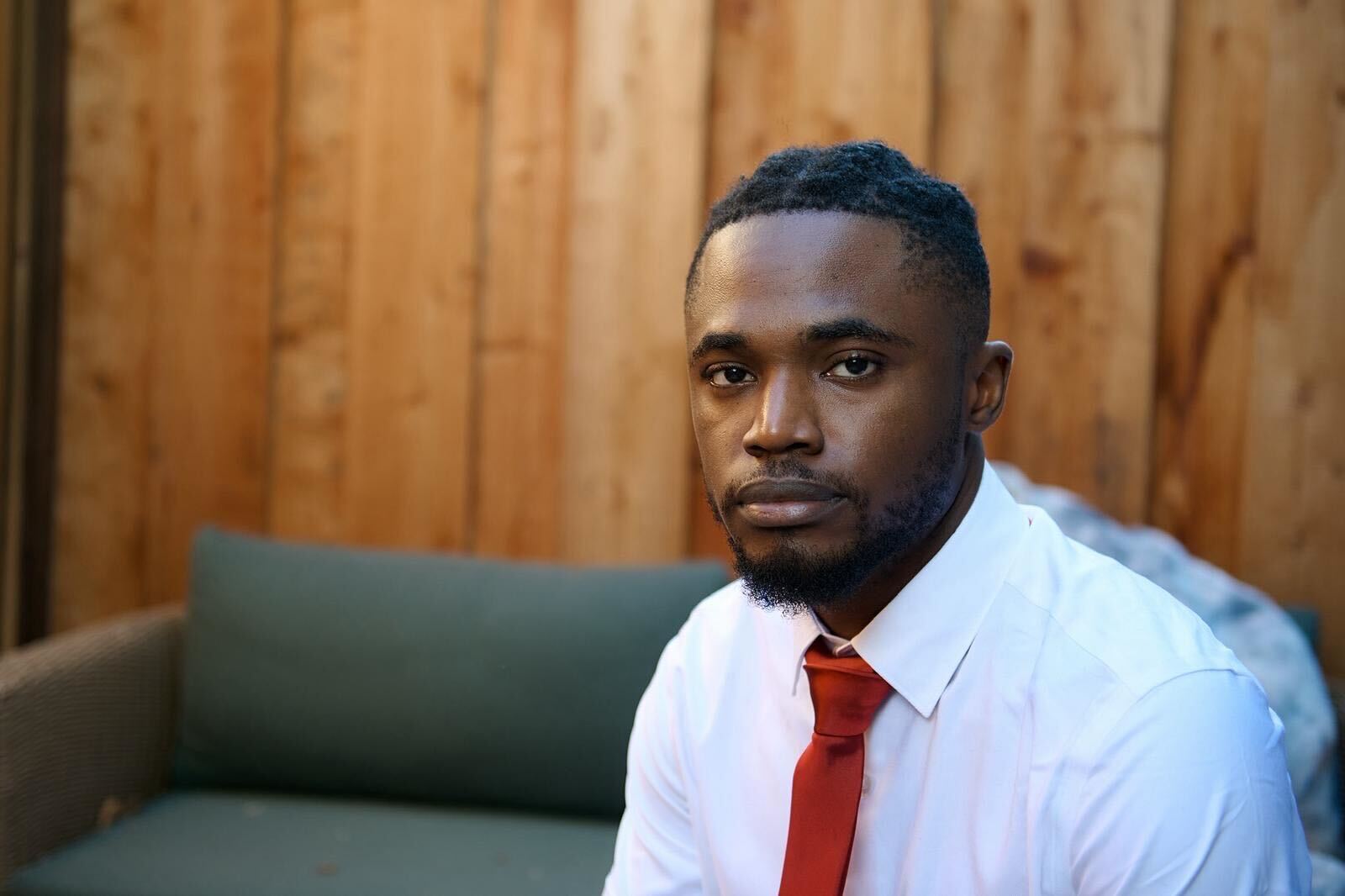Crypto in the African continent is either one of two extremes: a get-rich-quick scheme or complex technology. But for true enthusiasts like Moore Dagogo-Hart, crypto can be the path to financial freedom. After a journey that took him from building games in his hostel room at the University of Lagos to an internship at Goldman Sachs, Dagogo-Hart now spends his days building tools that provide financial freedom through crypto.
University of YouTube
Dagogo-Hart’s journey into tech is a classic tale for his generation: an initial spark in secondary school after encountering HTML and CSS for an IGCSE exam, fuelled in his first year at the University of Lagos taking a course called “Introduction to Computer Programming”, and practical lessons off-campus. He supplemented his school lessons with courses from YouTube. “I’m one of those people who would say YouTube saved my life,” Dagogo-Hart says. He is a proud graduate of the “University of YouTube,” with supplementary courses from Udemy.
Driven by a need to support his single mother—he lost his father at three months old—he was determined to turn the skills he was building into income. “I just always had it at the back of my mind that I had to help my mom with provision,” he said. By his second year, he was scouring Upwork, Fiverr, and Freelancer.com for programming gigs. He quickly realised that mobile app development was a scarcer, more valuable skill and pivoted to it, teaching himself through online tutorials.
The hustle and the first big break
His early career was a patchwork of freelance projects and referrals, largely orchestrated by a university friend and coding partner. “I feel like he would also say that I definitely shaped his journey,” Dagogo-Hart says of their symbiotic relationship. It was this friend and collaborator who referred him to his first significant remote job as a mobile app developer for Dealin, a UK-based blockchain company building a coupon app. This was his first real taste of working on a team and seeing a product through to completion, even if he left before its launch.
The local ecosystem also provided opportunities. He applied for a mobile developer role at Brimatel Global Network, a dev shop in Yaba, after seeing the posting on the “Unilag Devs” WhatsApp group. The CEO sold him on the company’s vision, and Dagogo-Hart worked on client projects, including his first serious foray into AI: building a chatbot called Simbi Bots to help university students study.
The indie developer: A viral game and a harsh lesson
Parallel to his contract work, Dagogo-Hart was nurturing the spirit of an indie builder. In 2019, he built a mobile game called Color Match in a single weekend. The concept was simple but engaging: players were shown a target color and had to select two colors from a palette that, when combined, would create it.
He had a grand financial plan based on ads and in-app purchases. “I’m going to make $1 million from this,” he had initially calculated. The reality was both more spectacular and more humbling. The game shot up to the number two spot on the Apple App Store and number four on the Google Play Store in Nigeria. He was featured on international platforms like App Advice, and his classmates looked at him differently. “It was a nice feeling,” he recalls.
But the hype was unsustainable. He was inundated with user feedback and update requests that he couldn’t manage while keeping up with school and other jobs. “I realised this thing is really hard,” he says. The dream of sustainable indie wealth faded, and he eventually stopped updating the game. Yet, the experience was foundational. “It was the first time I really saw people appreciate technology that I made alone.”
Goldman Sachs and the allure of crypto
Dagogo-Hart’s talent and hard work culminated in a coveted internship at Goldman Sachs in London in 2020, during the COVID-19 pandemic. The internship, for which he was paid £7,500, was a turning point. “That was the first time I had millions in my bank account,” he says. It changed his perspective on money and trading, moving him from a mindset of “put $100 in and make $10,000” to a more disciplined approach of “put $3,000 in and try to make $200.”
He converted the internship into a full-time role in 2021. He worked in the treasury department, building internal tools to automate financial models. But his heart was elsewhere. The 2021 crypto boom had captured him completely. He was deep in the trenches of Discord and Telegram groups, minting and flipping NFTs. His biggest win was a Mutant Ape Yacht Club NFT, which he acquired early and sold for about $50,000. He also rode the wave of Shiba Inu, making a 300x return. “I was just really obsessed with crypto because this was the first time that I saw something that was profitable and in line with my goals. I’ve always loved freedom, liberation, and having full control.”
Leaving the ladder to build a ladder
Just one month into his full-time role at Goldman Sachs, Moore quit. The structured, round-the-clock work was incompatible with the freedom he craved to build and trade. He returned to Nigeria to co-found Solaraft, a blockchain dev shop, with his friend Ephere Emmanuel.
Their first major product was Nebula, a non-custodial NFT wallet. They recruited a team of eight from their university network and built the first prototype in a three-week sprint. However, they were about to be schooled in the harsh realities of the African tech landscape. “I didn’t fully understand the legal parts of the crypto market,” Dagogo-Hart admits. When they tried to launch on the Apple App Store, they were blocked. The 2021 ban on cryptocurrency in Nigeria meant they couldn’t provide the necessary documentation. Their dream product was stillborn for a mass audience, limited to a small beta-testing group. It was a devastating lesson in regulation.
Zap: Building for freedom, learning from failure
The lessons from Nebula’s launch failure and his own experiences of being hacked twice became the bedrock of his current venture, Zap. “I was hellbent on making sure that I build products that could fix that,” he says.
Zap is a non-custodial crypto exchange and wallet, meaning users hold their own keys. Dagogo-Hart points to the hack of Patricia, a custodial platform, as a cautionary tale. “The people who were affected the most were the customers. The whole point of crypto is freedom. So, why would you put your money in a platform that doesn’t give you that freedom and control?”
Growth for Zap was slow and steady until a single, opportunistic decision in January of this year changed everything. They decided to list the meme coin, Trump. Dagogo-Hart posted about it on his Instagram story and got over 15,000 views. “That one move was able to change the whole trajectory of Zap,” he says. They gained 10,000 users in less than 12 hours, trended on Twitter, and processed over a thousand transactions in a day. It was the explosive growth startups dream of, proving that a single product-market fit could unlock the market.
The founder’s philosophy: Ownership, collaboration, and integrity
Dagogo-Hart’s journey has crystallised a core set of principles. From his indie days, he learned to be customer-centric. From Goldman Sachs, he learned the corporate and regulatory “language” necessary to scale. From his first startup, he learned the critical importance of collaboration and managing people.
“I’m super collaborative now,” he states. He champions an open-door policy where an intern’s idea can change the company’s technical direction, as happened when a junior team member’s research convinced Dagogo-Hart to migrate Zap’s backend from JavaScript to Golang to handle scale. “He came back the next day with a full research paper and eventually we changed to Golang.”
Underpinning it all is a relentless focus on ownership – not just equity, but the philosophical kind. “Ever since I was young, I’ve been building stuff to basically have ownership,” he reflects. This drives his commitment to non-custodial products, his early AI project to protect people from online predators, and his vision for a more accessible crypto ecosystem.
For Moore Dagogo-Hart, the path has been a masterclass in navigating systems—from app store policies to financial regulations and market hype. His story is not just about riding the crypto wave, but about trying to steer it toward a more secure, accessible, and equitable shore. He is, in his own words, trying to build the soul of the technology. And in the process, he is defining his own.
Mark your calendars! Moonshot by is back in Lagos on October 15–16! Join Africa’s top founders, creatives & tech leaders for 2 days of keynotes, mixers & future-forward ideas. Early bird tickets now 20% off—don’t snooze! moonshot..com








